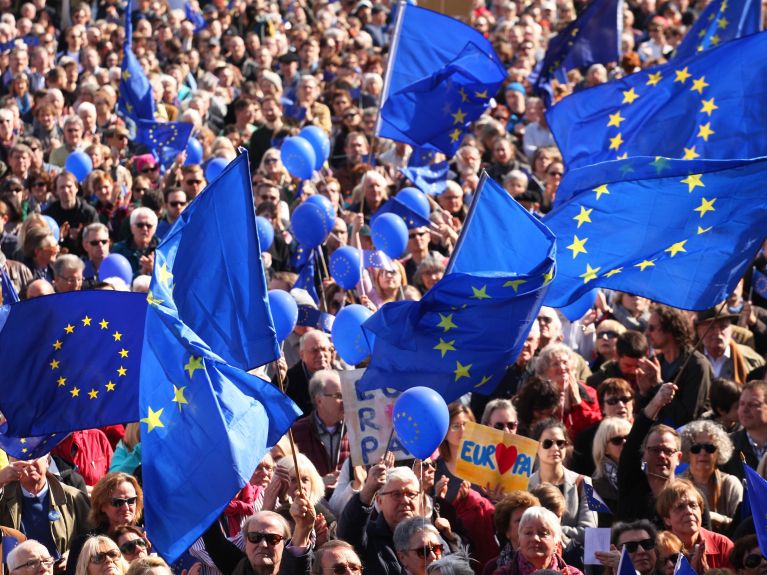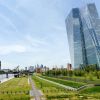Helping to shape Europe’s future
The Conference on the Future of Europe wants ideas from European citizens – relating for example to the EU’s role in the world.

What is the EU doing to combat climate change? How can democracy be strengthened? And what will Europe’s future look like, anyway? Responses to these questions must be found by politicians, but ideas from citizens are also wanted. One opportunity for them to contribute their ideas is at the Conference on the Future of Europe. From 15 to 17 October, the fourth citizens’ forum will start within the framework of the conference, topics being the role of the EU in the world and migration. We present an overview of how the EU Conference works, and how new forms of civic engagement look in Germany.
How is the Conference on the Future of Europe organised?
The conference is intended to enable citizens to directly contribute their own ideas and wishes about the future of Europe: at its heart is a digital platform on which anyone can present their visions or engage in an exchange with others – be it in German, English or Estonian, as the platform is available in all 24 official languages of the EU.
Other key elements of the conference are European citizens’ forums and plenary sessions. During the forums, 200 randomly selected citizens discuss specific topics. The participants are supposed to reflect Europe’s diversity in terms of age, gender and origin, and at least a third of them are supposed to be younger than 25. The Conference Plenary encompasses more than 100 citizens, plus representatives of the EU and the national parliaments. Recommendations from the forums are to be discussed during the plenary sessions.
What are the topics addressed by the Conference on the Future of Europe?
A number of focal topics have been set for the conference, which are also the subject of the four citizens’ forums. One forum addresses a broad spectrum of issues covering business, education, the digital transition and social justice to youth, culture and sport. Another citizens’ forum explores the topics of democracy, values and rights, the rule of law and security. Climate change and the environment and health are the central focus for another series of events. The fourth citizens’ forum is devoted to Europe’s role in the world and the topic of migration. Despite the breadth of these thematic fields, nothing is to be left out – on the digital platform, for example, anyone can raise any issue that they consider important.
Which concrete consequences is the conference supposed to have?
It is not only about sharing ideas and opinions. Within the framework of the conference, conclusions and guidelines for the future of Europe are to be elaborated by the spring of 2022.
Is something similar on offer in Germany?
Yes, in Germany all kinds of different people are discussing difficult questions in citizens’ councils – topics ranging from climate protection to educational policy. It is precisely because these forums bring together pensioners and young people, tradespeople and academics, people with and without migration background that they give rise to understanding and new ideas. The fact that the participants are chosen at random is also supposed to ensure this diversity.
In March 2021, a citizens’ council on “Germany’s role in the world” presented a report containing action recommendations to Bundestag president Wolfgang Schäuble, who is the project’s patron. The potential of these councils lies in their ability to keep alive and strengthen democracy, explained Schäuble.


